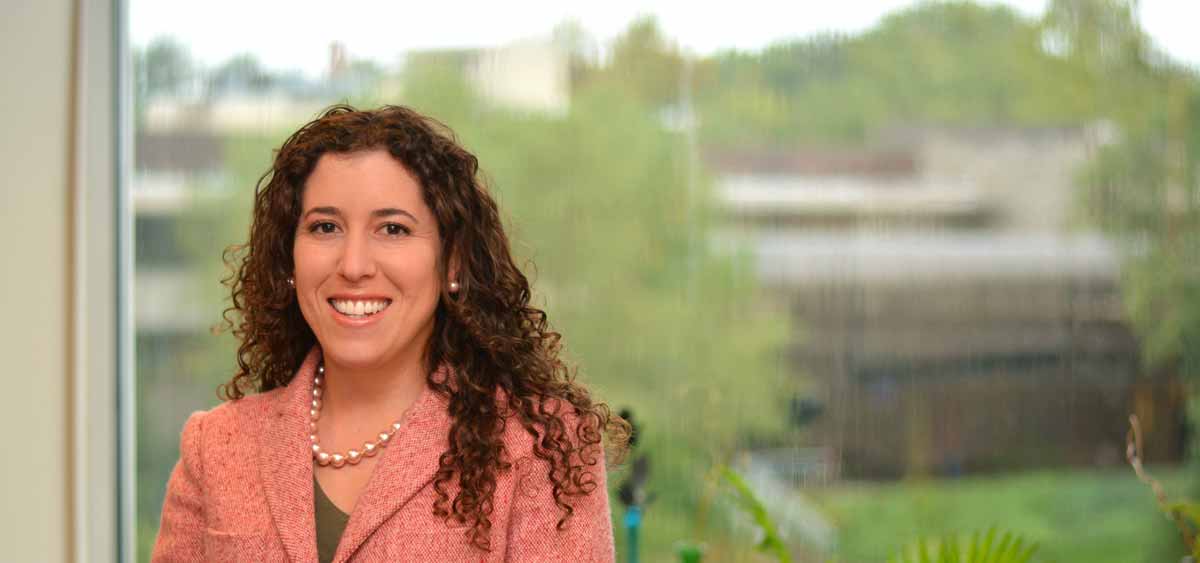
PHILADELPHIA (July 22, 2019) – Researchers at Fox Chase Cancer Center have developed a novel communication intervention to promote discussions about sexual health with breast cancer patients. This training program is called improving Sexual Health and Augmenting Relationships through Education (iSHARE). It focuses on helping breast cancer clinicians feel comfortable discussing sexual health concerns with their patients. Their paper demonstrating the efficacy of the program, “A Brief Intervention to Enhance Breast Cancer Clinicians’ Communication About Sexual Health: Feasibility, Acceptability, and Preliminary Outcomes,” appeared in the April 2019 issue of the journal Psycho-Oncology.
Breast cancer is the most frequently diagnosed cancer among women in 140 of 184 countries worldwide and affects over 220,000 women every year in the United States alone. Since most women diagnosed with this disease will live for years after completing their treatments, the focus for clinicians is increasingly not only on treating the disease but also on improving patients’ overall quality of life. This team effort involves addressing physical, psychological, and sexual health-related issues in order to provide the best quality care possible.
However, one topic that is often difficult to approach with breast cancer patients is sexual health, as both cancer clinicians and patients are reluctant to discuss this subject. Less than half of breast cancer patients are asked questions about sexual problems during their clinical visits, suggesting that many of these concerns remain unaddressed.
Jennifer Barsky Reese, PhD, assistant professor in the Cancer Prevention and Control Program at Fox Chase, developed iSHARE in order to address these communication barriers and educate clinicians on ways to facilitate sexual health dialogue with patients. Seven breast cancer clinicians participated in two sexual health counseling modules, completing an educational self-study session and a skill-based workshop.
They were evaluated immediately prior to and after the iSHARE intervention and in later months. The iSHARE intervention was also evaluated for its effects on clinicians’ beliefs about sexual health communication, on clinical communication during 134 breast cancer patient interactions, and on patient satisfaction after each clinic visit, among other measures.
Overall, findings revealed that the iSHARE intervention showed promise in improving breast cancer clinicians’ self-confidence in discussing sexual health concerns with patients and may have diminished communication barriers. The iSHARE training approach was generally well-accepted and feasible according to clinician reports, suggesting that it may have a positive impact on breast cancer clinicians’ efficacy and communication. Clinician communication regarding sexual health improved after participating in the iSHARE intervention. Patient satisfaction remained high for general clinical care.
Overall, these beneficial outcomes could help address breast cancer patients’ sexual health problems by promoting active discussion with breast cancer patients. Increasing the frequency of sexual health conversations may improve quality of life and in turn promote mental and physical well-being for women affected by breast cancer.
The group’s next steps are developing a podcast to continue educational training for breast cancer clinicians to discuss sexual health with their patients, which could ultimately have broad reach relative to an in-person intervention. Another step will be to evaluate a patient-focused intervention designed to facilitate clinical discussions of sexual health.
This work was supported by the MRSG-14-031-CPPB grant from the American Cancer Society and National Cancer Institute Grant P30CA006927 from the National Cancer Institute of the National Institutes of Health.